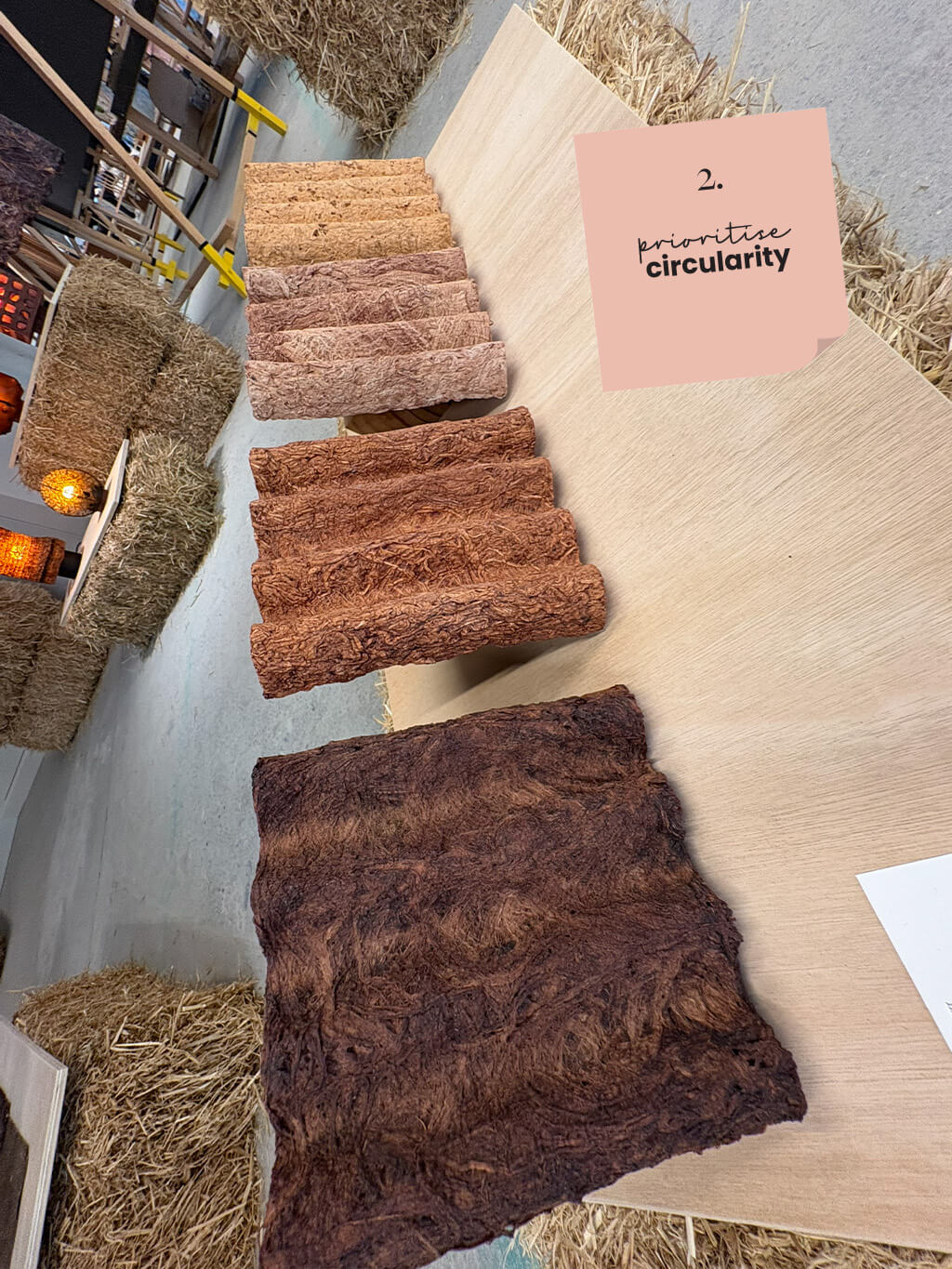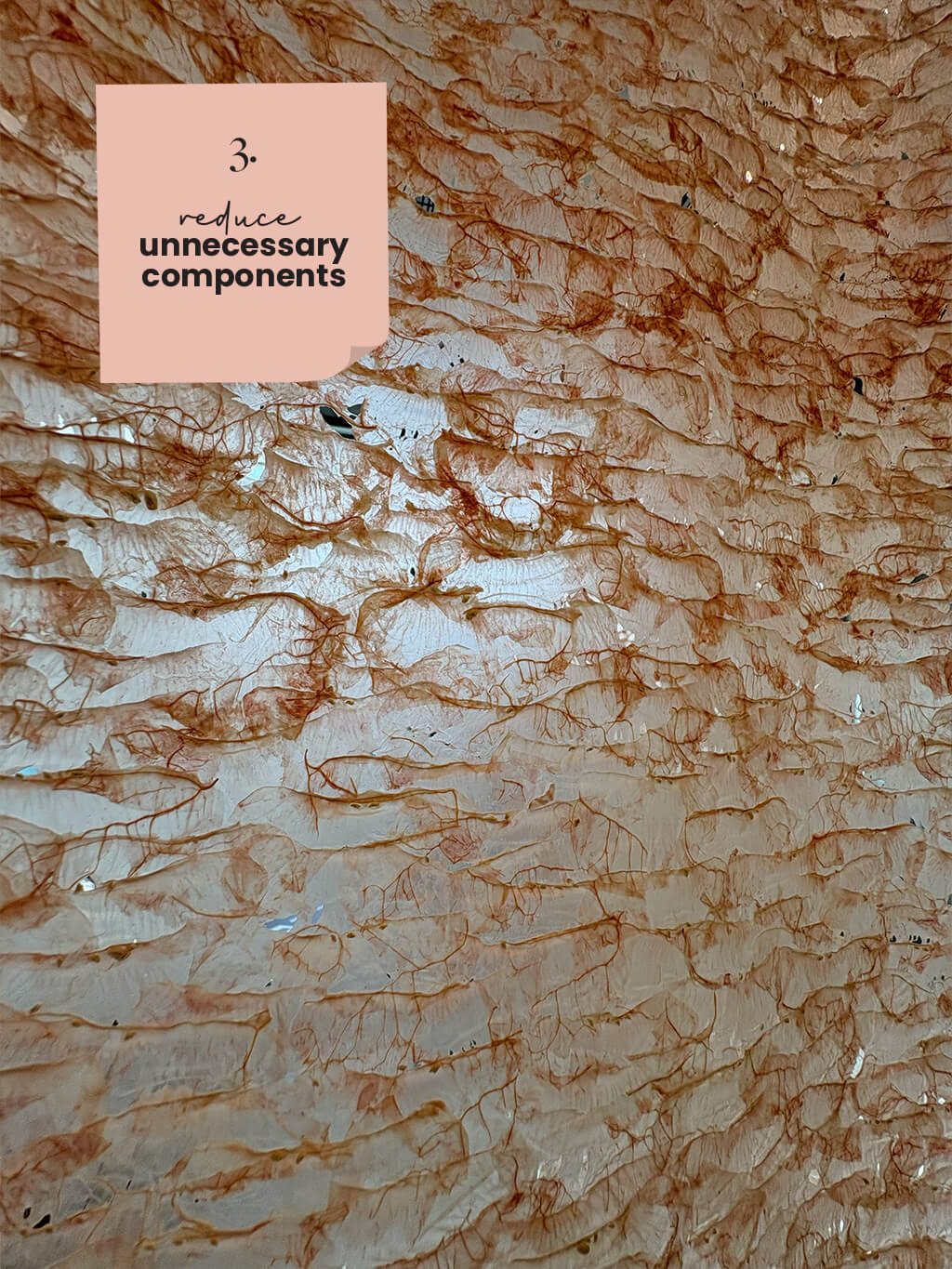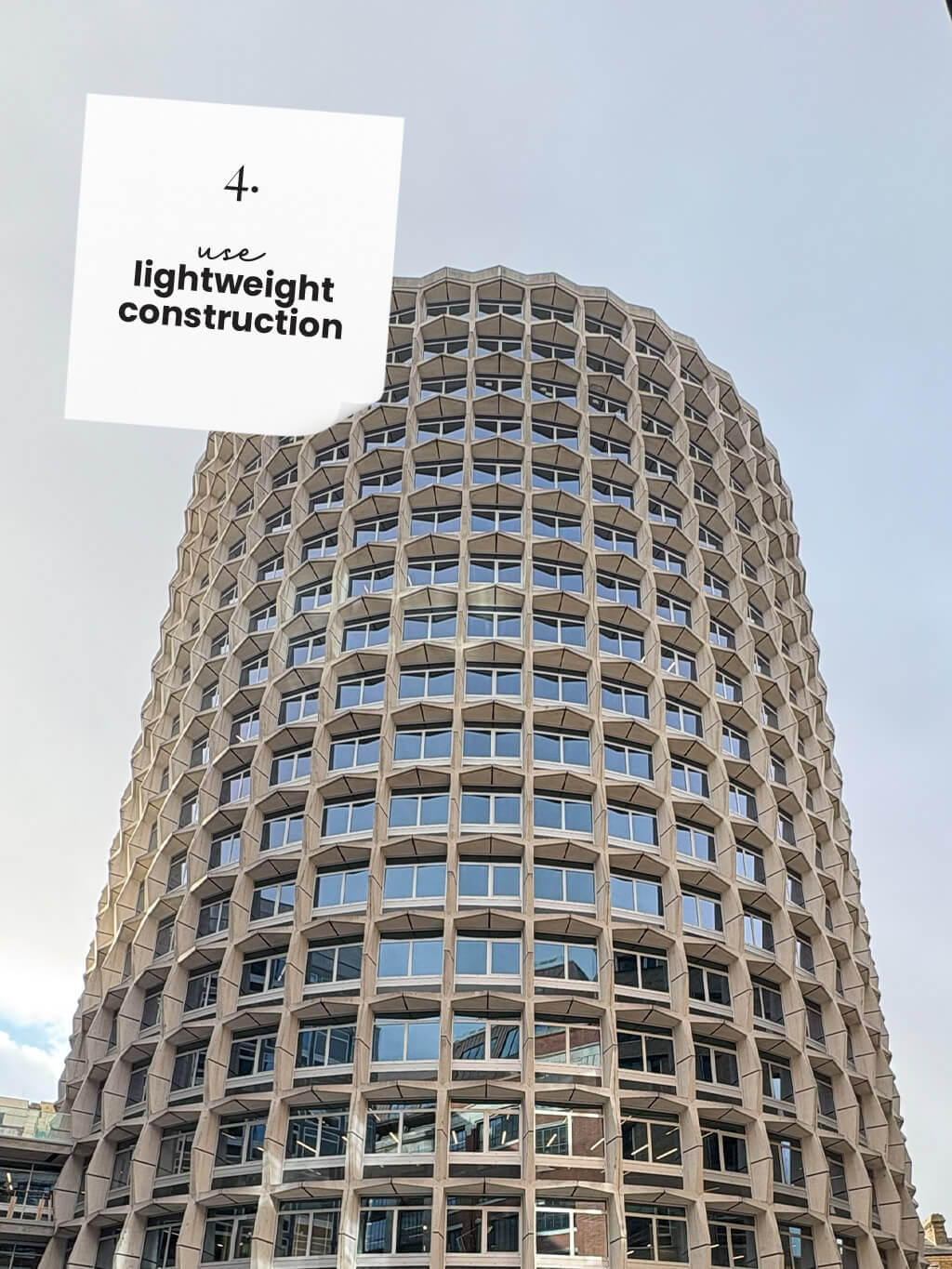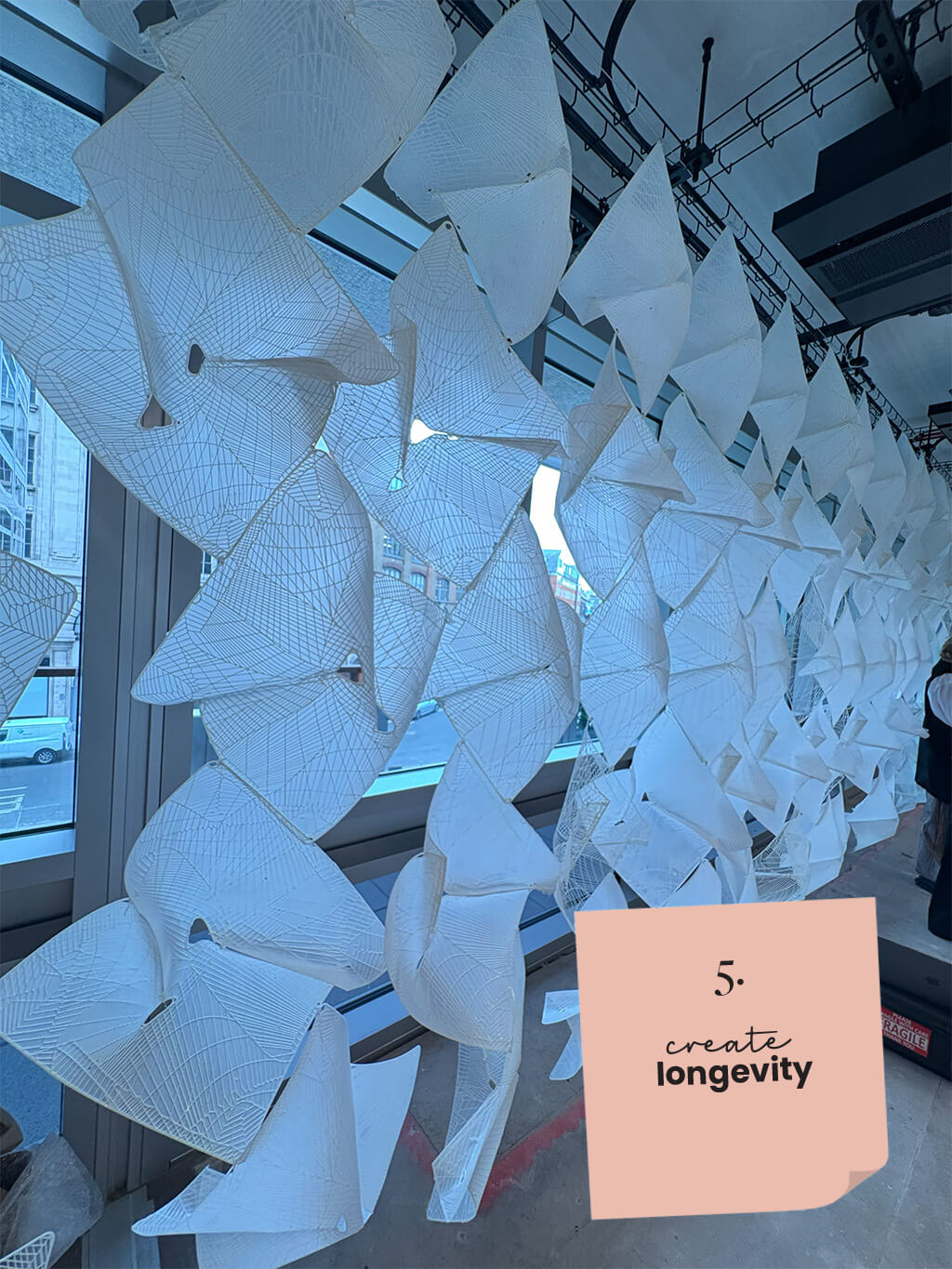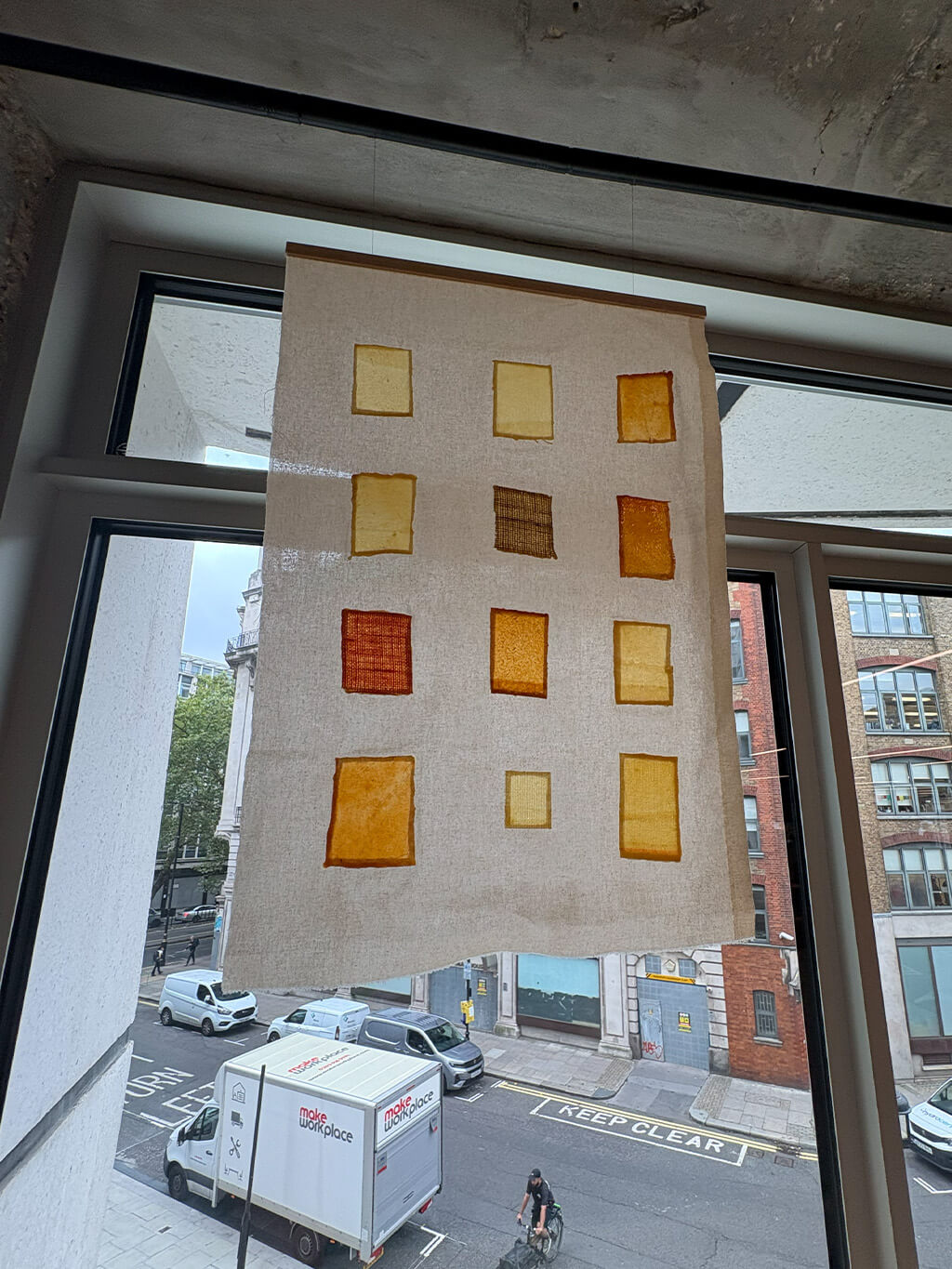Share
For decades, as an industry, we’ve viewed the natural resources around us with a somewhat free for all and take all you need mindset, but in recent years we’ve come to a more deeper understanding of the impact this can have to not only the world, but also future generations to come. This year at Material Matters we’ve seen an even further deep dive into not just what materials can look like on the surface, but also where it comes from and what it leaves behind.
The route to zero project by PriestmanGoode was heavily talked about throughout the event and their main challenge to the industry was the simple fact; ‘Why does sustainability get sidelined?’. The simple, yet inexcusable fact of the matter is that sustainability becomes diluted throughout the design process as the different needs and requirements are met.
Their main comeback to the problem underlined the statement that sustainability can no longer just be an input into the brief, but should be an underlying thread, consciously considered throughout the project.
Three main steps highlighted a step in the right direction for those worried about switching up their process; Intercept, Innovate and Advocate. Starting with Intercept which brings up the challenge, ‘who is responsible for making the first move’. Reframing the brief, bringing the drive from the end users and consumers of today, and placing the responsibility with the designers as those who understand the full picture. Using the insights to shape the briefs and set clear boundaries that can be integrated from the start to deliver the best outcome for people and planet.
With Innovate, we spot the challenge of an apprehension around changing what we know so well due to risk, time and cost. Instead we can take inspiration from across sectors and uncover what has already been tested in similar industries, not only including materials, but also innovate to use sustainable practices throughout a product lifestyle.
Finally the Advocate stage, focusing on how designers and specifiers can make more evidence based choices around sustainable materials. The challenge here being the difficultly of knowing if a product/company is genuine in their claims because of a lack of consistent baseline to compare. A solution to this problem is created through PG, Material Mind, a curated database that gathers and compares information about sustainable materials.

